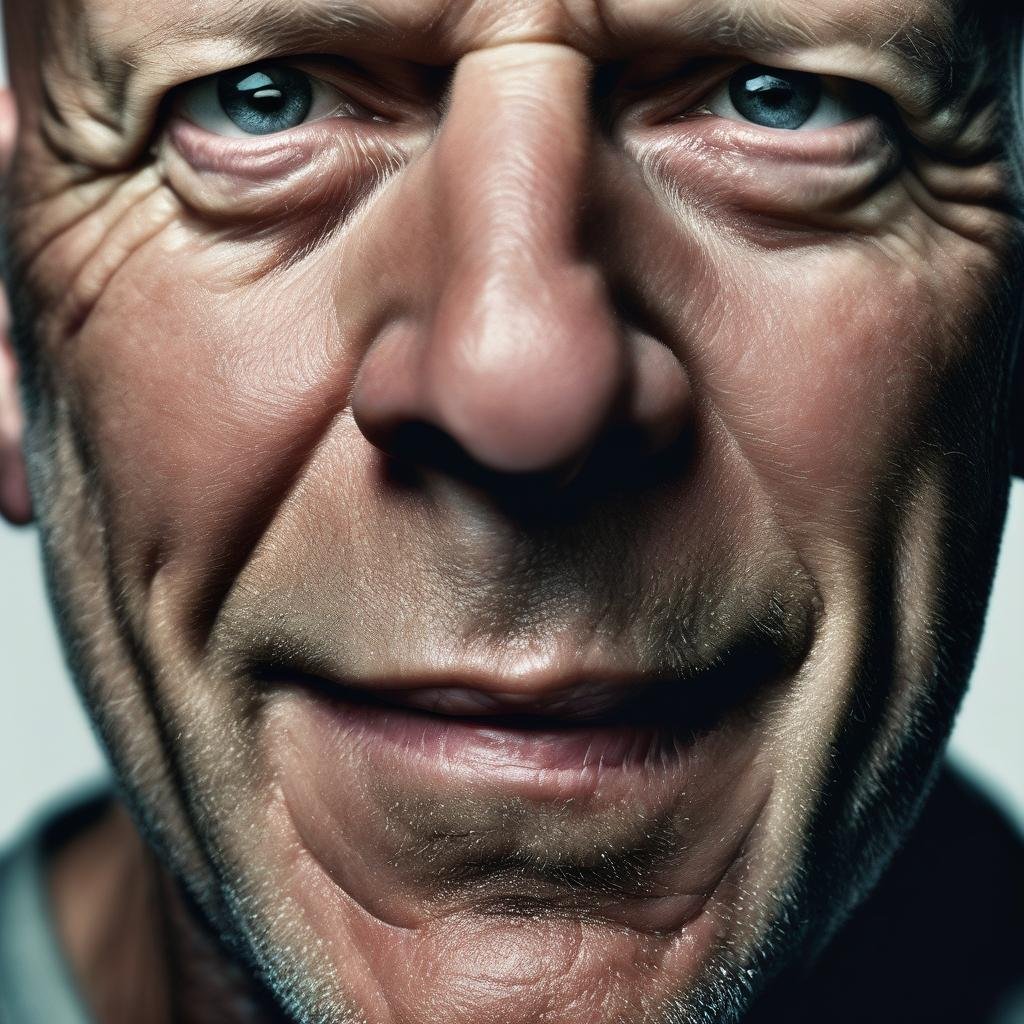As an iconic figure, Bruce Willis’ entire storied career and life have teetered on the edge of humanity and acting excellence. Despite navigating the turbulent waters of frontotemporal dementia, he remains an emblem of strength and resilience.
With a career spanning over four decades, Willis has become etched into the hearts of millions as an unshakable symbol of courage and determination.
Bruce Willis
The Diagnosis
However, even icons like Willis are not immune to the harsh tides of life. The revelation of his battle with frontotemporal dementia, shared by his family in 2023, has shed light on the severity of this condition and its impact on individuals and their families.
In 2022, Willis was diagnosed with aphasia, a condition characterized by loss of ability to understand or express speech. While the public admired Willis for his on-screen performances, behind closed doors, he and his family embarked on a turbulent journey confronting a diagnosis that would significantly alter their lives.
Indeed, it was the stepping stone to further investigations that finally led to the grim discovery of his frontotemporal dementia in 2023. Despite its terrifying prognosis, Willis refused to allow his diagnosis to dampen the vibrant spark that had been a trademark for his entire acting career.
The Family
The Willis family, particularly his youngest daughter, Tallulah Willis, has been proactive in bringing the struggles of their patriarch to the public perception. During her November 8 appearance on “The Drew Barrymore Show”, Tallulah portrayed a detailed picture of the struggles they are combating, referring to her dad’s disease as “really aggressive”.

Despite their affluence and access to resources, her candid discussion underscored the universality of the issues faced by families dealing with such devastating conditions. The emotional and psychological impact that this disease inflicts transcends all materialistic constructs, shedding light on the harsh reality that money cannot shield one from the pain and sorrow brought by the decline of a loved one.
Emma Willis, Bruce Willis’s wife, in an essay for Maria Shriver’s Sunday Paper, further humanized these struggles. She revealed the “guilt” experienced owing to the family’s abundant resources. This guilt stemmed from the awareness of less fortunate families, wrestling with similar medical situations without the benefit of the resources that the Willis family had access to.
I struggle with guilt, knowing that I have resources that others don’t. When I’m able to get out for a hike to clear my head, it’s not lost on me that not all care partners can do that,” she writes. “When what I share about our family’s journey gets press attention, I know that there are many thousands of untold, unheard stories, each of them deserving of compassion and concern.
Emma Willis to Maria Shriver’s Sunday Paper
Yet, the guilt also hints at the inherent helplessness that every individual experiences while witnessing the relentless progression of frontotemporal dementia in their loved ones. Coupled with the emotional turmoil, this guilt represents a widespread dilemma faced by care-givers.
The Outcome
The journey of Bruce Willis, from an acclaimed actor to a brave warrior of a debilitating disease, is a testament to his unyielding spirit. Despite the grim diagnosis and the progressive nature of his dementia, Willis’ legacy for resilience remains intact. Although medical science presently has no cure for aphasia or frontotemporal dementia, Willis’ battle serves as a poignant reminder that strength lies not in the absence of debilitating conditions but in the courage with which we face them.
Remembering Willis does not connote celebrating his demise but acknowledging the virtues of perseverance and courage he has thus far exhibited. His years in the film industry are characterized by diverse roles that showcased his versatility and raw, emotional depth. Those roles, no matter how fictional, shed light on his inherent strength, apparent in his current circumstances. The Willis family’s openness about their patriarch’s condition also displaces a significant societal stigma, emphasizing that life-threatening illnesses do not discriminate.
Willis’ struggle against his medical conditions provides a valuable lesson, not only to those battling similar ailments but to humanity at large. It is a mirror to society, reflecting the severe realities and impacts of critical illnesses on individuals and their families. His enduring legacy lies not solely in his body of work as an actor but also in his courage to face and publicly acknowledge his battle with frontotemporal dementia. Despite succumbing to a harsh reality, he continues to be remembered through his ceaseless courage, inspiring countless individuals worldwide.

Bruce Willis’s enduring legacy is a composite of his extraordinary acting career and his resolute battle against his medical conditions. His legacy serves as a reminder that courage is not just about winning battles but also about facing them head-on, regardless of the outcome. As a public figure, his candid revelation brings forth a much-needed discussion on ailments like aphasia and frontotemporal dementia.
More so, his personal resilience proves that life’s challenges, no matter how considerable, cannot diminish one’s legacy but instead fortify it. Bruce Willis will be remembered as an unmatched acting talent, a persevering struggler, a brave fighter, a beloved family man, and an eternal symbol of human courage.
